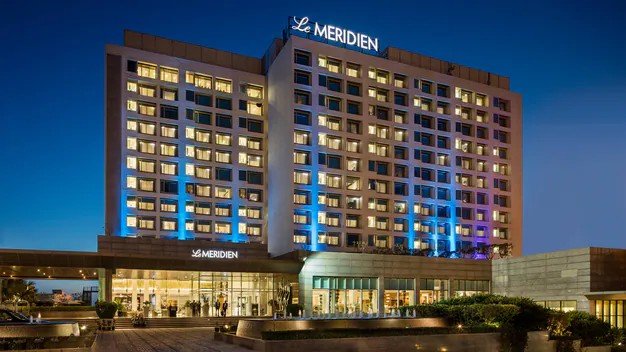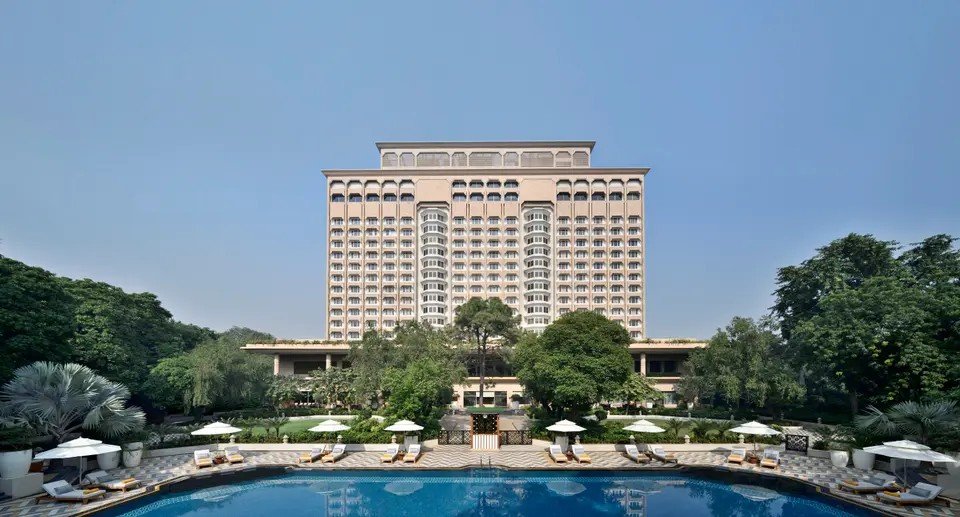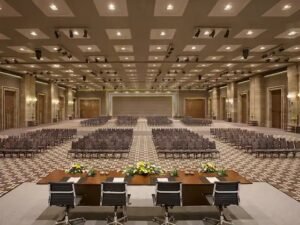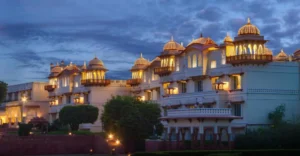
How to Choose Between a 3-Star, 4-Star, and 5-Star Hotel for Your Event [2025]

Choosing the right hotel for your event is a crucial decision that can significantly impact the experience of your guests and the success of your gathering. Hotels are classified into tiers—3-star, 4-star, and 5-star—based on their level of service, amenities, and overall quality. Understanding the differences between these tiers and how they align with various event types and budgets is essential.
This guide explores the key features, pricing, suitability, booking processes, real-life challenges, and critical considerations to help you make an informed decision for your event in 2025.
Overview of Hotel Classifications
3-Star Hotels
3-star hotels provide comfortable accommodations with essential amenities and a focus on affordability. They typically include:
- Basic Amenities: Wi-Fi, air conditioning, and standard room services.
- Event Spaces: Modest conference rooms or banquet halls.
- Dining Options: On-site restaurants with limited menu options.
- Target Audience: Budget-conscious travelers and small-scale events.
4-Star Hotels
4-star hotels offer a blend of luxury and functionality, catering to a wide range of events. Key features include:
- Enhanced Amenities: Swimming pools, fitness centers, and upgraded room services.
- Event Spaces: Larger and more stylish venues for conferences, weddings, or celebrations.
- Dining: Multiple restaurants offering diverse cuisines and high-quality dining experiences.
- Target Audience: Mid-range budgets and events requiring moderate luxury.
5-Star Hotels
5-star hotels epitomize luxury, elegance, and top-tier service. Features include:
- Premium Amenities: Spas, fine dining, concierge services, and luxury suites.
- Event Spaces: Grand ballrooms, rooftop venues, and technologically advanced meeting rooms.
- Customization: Tailored event planning services and exclusive packages.
- Target Audience: High-end events, VIP gatherings, and large-scale celebrations.
Comparing 3-Star, 4-Star, and 5-Star Hotels

| Feature | 3-Star Hotels | 4-Star Hotels | 5-Star Hotels |
| Cost | Affordable (INR 50,000–1,50,000) | Moderate (INR 2,00,000–5,00,000) | Premium (INR 8,00,000+ and above) |
| Event Space | Basic conference rooms | Stylish banquet halls | Grand, luxurious ballrooms |
| Catering | Limited options | Diverse menus | Gourmet, customized options |
| Technology | Standard AV equipment | Advanced setups | State-of-the-art solutions |
| Ambiance | Functional | Modern elegance | Sophisticated luxury |
| Guest Accommodation | Standard rooms | Upgraded amenities | Luxury suites with premium services |
Suitability for Different Event Types
Corporate Events
- 3-Star Hotels:
- Best for small-scale meetings, workshops, or budget-friendly seminars.
- Provides essential AV equipment and functional meeting spaces.
- 4-Star Hotels:
- Suitable for mid-sized conferences, product launches, or team-building activities.
- Offers a professional ambiance with upgraded facilities.
- 5-Star Hotels:
- Ideal for high-profile corporate gatherings, executive retreats, and hybrid events.
- Includes cutting-edge technology, personalized service, and VIP accommodations.
Weddings
- 3-Star Hotels:
- A practical choice for small, intimate weddings.
- Limited decor and customization options.
- 4-Star Hotels:
- Accommodates medium-sized weddings with a mix of elegance and affordability.
- Offers themed decor and diverse menu options.
- 5-Star Hotels:
- Perfect for grand weddings and destination celebrations.
- Provides bespoke planning services, luxury decor, and world-class catering.
Celebrations and Parties
- 3-Star Hotels:
- Suitable for casual gatherings or birthday parties.
- Budget-friendly with basic amenities.
- 4-Star Hotels:
- Great for milestone celebrations or formal dinners.
- Offers a balance of sophistication and cost-effectiveness.
- 5-Star Hotels:
- Best for extravagant galas, anniversaries, or themed parties.
- High-end entertainment and premium services.
Real-Life Challenges and Solutions
Challenges in Booking a Venue
- Availability Issues: Popular hotels often get booked months in advance, especially during peak wedding or conference seasons.
- Solution: Start planning and booking at least 6–12 months prior to your event.
- Hidden Costs: Additional charges for services like parking, Wi-Fi, or late-night extensions can inflate the budget.
- Solution: Clarify all costs upfront and request a detailed estimate.
- Capacity Mismatch: Choosing a venue that’s too large or too small for your guest list.
- Solution: Confirm attendee numbers before finalizing the venue.
- Technical Glitches: Issues with AV equipment or internet connectivity can disrupt events.
- Solution: Test all equipment a day prior and have technical support on standby.
Booking Process: Step-by-Step Guide

Step 1: Define Your Event Requirements
- Determine the type of event, number of guests, and essential services (e.g., catering, decor, technology).
Step 2: Research and Shortlist Venues
- Use platforms like Your Hotel Planner to explore available options.
- Filter by location, budget, and required amenities.
Step 3: Schedule Site Visits
- Visit shortlisted venues to assess their ambiance, cleanliness, and suitability.
- Check the layout, parking facilities, and accessibility.
Step 4: Negotiate Pricing
- Discuss your budget and negotiate for discounts or complimentary services.
- Look for bundled packages that include catering, decor, and tech support.
Step 5: Finalize and Book
- Review the contract carefully before signing.
- Pay the initial deposit and retain copies of the agreement for reference.
What Not to Do When Choosing a Venue
- Skipping Research: Avoid selecting a venue without comparing multiple options.
- Overlooking Hidden Fees: Don’t assume everything is included in the quoted price.
- Ignoring Accessibility: Ensure the venue is convenient for all guests, including those with special needs.
- Procrastinating on Booking: Delaying the booking can lead to unavailability or higher costs.
- Neglecting Guest Comfort: Consider guest accommodations, parking, and dining options to ensure a positive experience.
Pricing Analysis in INR
| Event Type | 3-Star Hotels (Approx. Cost) | 4-Star Hotels (Approx. Cost) | 5-Star Hotels (Approx. Cost) |
| Small Meetings | INR 20,000–50,000 | INR 50,000–1,50,000 | INR 2,00,000+ |
| Medium Conferences | INR 1,00,000–2,50,000 | INR 3,00,000–5,00,000 | INR 7,00,000+ |
| Weddings | INR 3,00,000–5,00,000 | INR 7,00,000–20,00,000 | INR 30,00,000+ |
| Celebrations and Galas | INR 1,00,000–2,50,000 | INR 3,00,000–5,00,000 | INR 10,00,000+ |
(Note: Prices are indicative and vary by location, season, and specific requirements.)
FAQs
1. How do I ensure a venue’s availability?
Book early and confirm your reservation with a deposit.
2. Can I negotiate pricing at 5-star hotels?
Yes, especially for large events. Discuss bundled packages and complimentary services.
3. What is the refund policy if I need to cancel?
Review the contract’s cancellation and refund terms before signing.
4. How can Your Hotel Planner help with venue selection?
Your Hotel Planner simplifies the process by providing curated options across hotel tiers, tailored to your budget and needs.
Conclusion
Choosing the right hotel tier for your event requires careful consideration of budget, event type, and guest expectations. While 3-star hotels offer practicality and affordability, 4-star hotels strike a balance between cost and sophistication. For those seeking unparalleled luxury, 5-star hotels provide the ultimate experience.
With Your Hotel Planner, you can explore, compare, and book venues seamlessly, ensuring your event is a resounding success in 2025.
- The Perfect Backdrop | Photogenic Venues for Picture-Perfect Weddings [2025]

- The Role of Venue Consultants in Booking Premium Wedding Venues In 2025

- How to Choose Between a 3-Star, 4-Star, and 5-Star Hotel for Your Event [2025]

- Destination Weddings in Jaipur | A Royal Affair You Can Afford

- How to Plan a Corporate Event in a Luxury Hotel | Step-by-Step Guide [2025]

- Destination Weddings in India | Cost Breakdown for Top Cities [2025]
